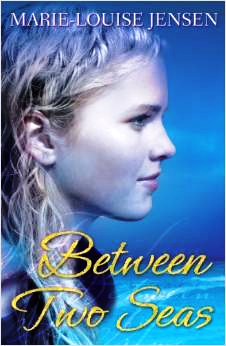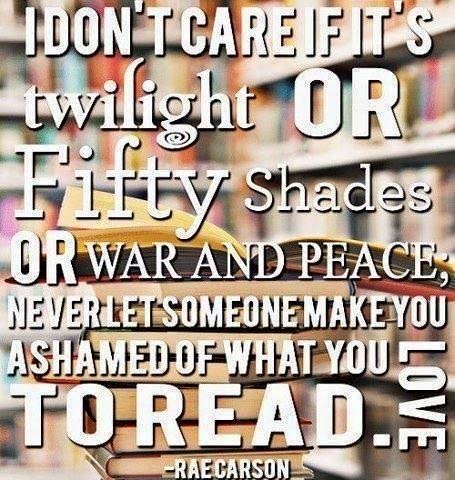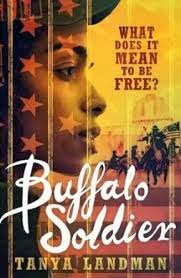Unlike my warm hearted, keep at-it post on the joys to come when you've sold your first book, this is going to be a motivational post of the boot camp variety. Read on only if you're tough enough.
Read more »
Viewing: Blog Posts Tagged with: Tanya Landman, Most Recent at Top [Help]
Results 1 - 5 of 5
Blog: Notes from the Slushpile (Login to Add to MyJacketFlap)
JacketFlap tags: Motivation, Philip Ardagh, Cathy Cassidy, Tanya Landman, "Kathryn Evans", Writercise Boot Camp, Writing Motivatiom Steve Cole, Add a tag
Blog: An Awfully Big Blog Adventure (Login to Add to MyJacketFlap)
JacketFlap tags: Tanya Landman, Savita Kalhan, teen/YA lit, Diversity, Pat Walsh, Ruta Sepetys, #savelibraries, #NLD15, Add a tag
In my blog for An Awfully Big Blog Adventure back in December, I shared a list of some of my favourite teen and young adults books that I'd read in 2014. You can read that blog here - Favourite Teen/YA reads of 2014. Commenting on the blog, David Thorpe asked me an interesting question – why were those books in particular on my favourite reads of the year? His question made me wonder if there was something that linked the books, a shared theme, a particular voice, or a genre. I looked at the list and at first thought: no, the books are all very different. Some of them were written in the first person present, others in the third person past; some had a male POV, others a female. Many of them were set in different parts of the world, or in an alternative world, or in a different time.
All the books in my list are richly diverse in terms of when and where they are set. Most of them are set in different countries, from Denmark to Ireland, Germany to the USA, and I think that’s part of their lure for me. Many of the books are set in a different time or era: from the 19thCentury to a version of the future, or even a parallel time.
Some of the books are fairy tale like. The Hob and the Deerman reads like a wonderful fairy tale and reminds me of all the fairy stories I read as a child. I would happily invite a Hob to come and share my home. Jonathan Stroud’s Lockwood and Co, is set in London – but although the places in the book may be familiar to a Londoner, it’s not quite like the London we know. It’s beset by ghosts and ghouls that only children have the ability to see and deal with. So, when darkness falls, the adults lock their doors, leaving the child agents to do their work.
It was just as I finished reading Out of the Easy by Ruta Sepetys at Christmas, that I realised there wasa common thread between all the books in my list. Out of the Easy is the story of Josie, the daughter of a prostitute in New Orleans in the 1950’s. It’s a book that I would definitely include in my list of favourite teen/YA reads of 2014.
It is the fact that they are set in a different time and place and sometimes in a different world which sets these books apart, and I think that’s what I love about them. All the writers beautifully evoke their setting, so that by the time you’ve finished their book you come away feeling as though you really know that place.
It’s not only the variety of world settings or time they’re set in that set these books apart for me, but also the variety in the lives of the characters. In both of Tanya Landman’s books, Buffalo Soldier and Apache, the main characters are girls: one is a black slave and the other is an orphaned Apache. If I had a teenage daughter, I would be recommending them to her. (Luckily I have nieces to whom I can recommend books!) But my teen son has no problem with books where the main character is a girl, and is interested in reading both.
Here’s the hashtag for National Libraries Day on Twitter #NLD15
Or share a library #shelfie
Follow @NatLibrariesDay on Twitter and you’ll know what’s going on.
So the books are there – if you can find them or have been made aware of them. I’m hoping 2015 will be even more richly diverse in teen and young adult literature. I’m sure I’ve missed a few great reads in 2014, so please feel free to leave your recommendations in the comments. And I’d love to hear what makes a book stand out for you.
My website
Blog: An Awfully Big Blog Adventure (Login to Add to MyJacketFlap)
JacketFlap tags: Neil Gaiman, Jonathan Stroud, Tanya Landman, Marie-Louise Jensen, Pat Walsh, Savita Kalhan, Helen Grant, Rainbow Rowell, teen/YA lit, Che Golden, Add a tag


 The Unicorn Hunter by Che Golden
The Unicorn Hunter by Che Golden Blog: An Awfully Big Blog Adventure (Login to Add to MyJacketFlap)
JacketFlap tags: fairytales, Richard Dawkins, Lucy Coats, Reading and Writing, Tanya Landman, Ruth Graham, Claire McFall, teen/YA lit, Add a tag
Children's books have spawned an excess of silliness in the media lately. First of all there was Ruth Graham's article on Slate, which told its readers, in no uncertain terms that:
"Adults should be ashamed of reading literature written for children".Oh dear. That's me with my knuckles rapped, then.
The same day, the perennially anti-escapism Richard Dawkins weighed in with his opinions on fantasy and fairytales, saying
"I think it's rather pernicious to inculcate into a child a view of the world which includes supernaturalism".
Now I took issue with Professor Dawkins (aka 'The Frog') on this very subject back in 2008, with a piece called 'Long Live the Fairytale', and I still stand by the words I wrote.
To be honest, I'm just a bit fed up with having to get up and shout against this sort of thing, so I'm not going to go into a long and involved rant here. Luckily for me, there are many other people who can do that far better and more articulately - Non Pratt (on reading YA) last week, and Philip Pullman (on Fairytales) back in 2011 - to name just two.
From a personal point of view, I am what might be called an omnivorous reader. Last week it was Jennifer Worth's accounts of midwifery in 1950's London, before that Jung Chang's fascinating biography of the Dowager Empress Cixi, as well as some excellent UKYA by Tanya Landman and Claire McFall - one a historical novel about the American Civil War and the other an almost literally heart-stopping thriller. I read letters, I read diaries (because I'm damned nosy). I read literary novels, I read crap detective stories. I read erotica and travel, politics, the classics and deep, dusty tomes on mythology, ancient religions and shamanism, picture books, chapter books and middle-grade fiction. Even the backs of cereal packets if I'm really desperate (I recommend Rude Health ones).
I write all sorts of different stuff too - from very young picture books about grubby pirates and tree-snipping bears through retellings of old myth and folklore to novels about fairy folk, dragons and ancient queens.
The point I'm trying to make here is that I'm not ashamed of any of it. Not the reading, not the writing - and why the hell would anyone think they have the right to tell me I should be? I LIKE reading YA. It gives me a different sort of reading pleasure to, say, Austen or Tolstoy or Zadie Smith or Donna Tartt or Malcolm Gladwell - but I happen to think that's ok.
Same goes for the writing. I LIKE making weird and fantastical stories up for kids of all ages (including ones about fairies and gods). From the fan-mail I get, and the interactions I have with kids in the schools I visit, I think my readers appreciate it too. In my opinion, fairytales and fantasy feed the mind, they don't corrupt it, and I still don't think Mr Dawkins gives children enough credit for intelligence. What I said back in 2008 is as relevant to me today as it was then, so I'll leave you with this thought:
"A child’s mind is absolutely capable of containing many ‘once upon a times’ and evidential scientific formulae all at the same time—and what’s more, distinguishing entirely successfully between the two without any harmful effects whatsoever."
Stick that where the sun don't shine, Professor. Thanks all the same, but I'd rather listen to Einstein.
Blog: An Awfully Big Blog Adventure (Login to Add to MyJacketFlap)
JacketFlap tags: Tanya Landman, Buffalo Soldier, Add a tag
I grew up very confused.
My grandmother was born in 1903: her generation had lived through WW1 and WW2, keeping the home fires burning and the country running, dealing with grief and loss with heroic fortitude. All around me I could see strong, intelligent, capable women: there was nothing weak or feeble about any of them!
And yet when it came to film and TV, if a woman appeared on screen at all, you could guarantee three things. She would:
1) scream
2) fall over
3) need rescuing.
Oh yes – and if she was being chased she’d be in high heels and she’d never ever have the sense to take her shoes off so she could run properly. I seemed to spend most of my childhood yelling at the screen, “Don’t do that, you stupid woman!”
But as far as female role models on screen were concerned, Scarlett was kind of it.
It’s true that every so often a character would come along who would be hailed by the press as a feminist icon. I remember when Sarah Jane joined Doctor Who she was said to be something new and different. She had a job! Sarah Jane was a journalist, no less. Wow! Here was a companion with brains!!!!
I watched the first episode with avid interest. As I recall she did the guaranteed 1 – 3 in about five minutes flat.
It was the same with Marian Ravenwood in Raiders of the Lost
When I started writing I wanted to create female characters who were not only capable of saving their own skins, but of rescuing other people too. Who had adventures and faced challenges; who were good at what they did and could think and act for themselves. Just like real women, in fact. I’ve written the kind of people I’d have enjoyed reading about in my youth: the kind of ones I’d have loved to have seen on TV: people like Charley O’Hara, the subject of my new novel, Buffalo Soldier. Charley – born














